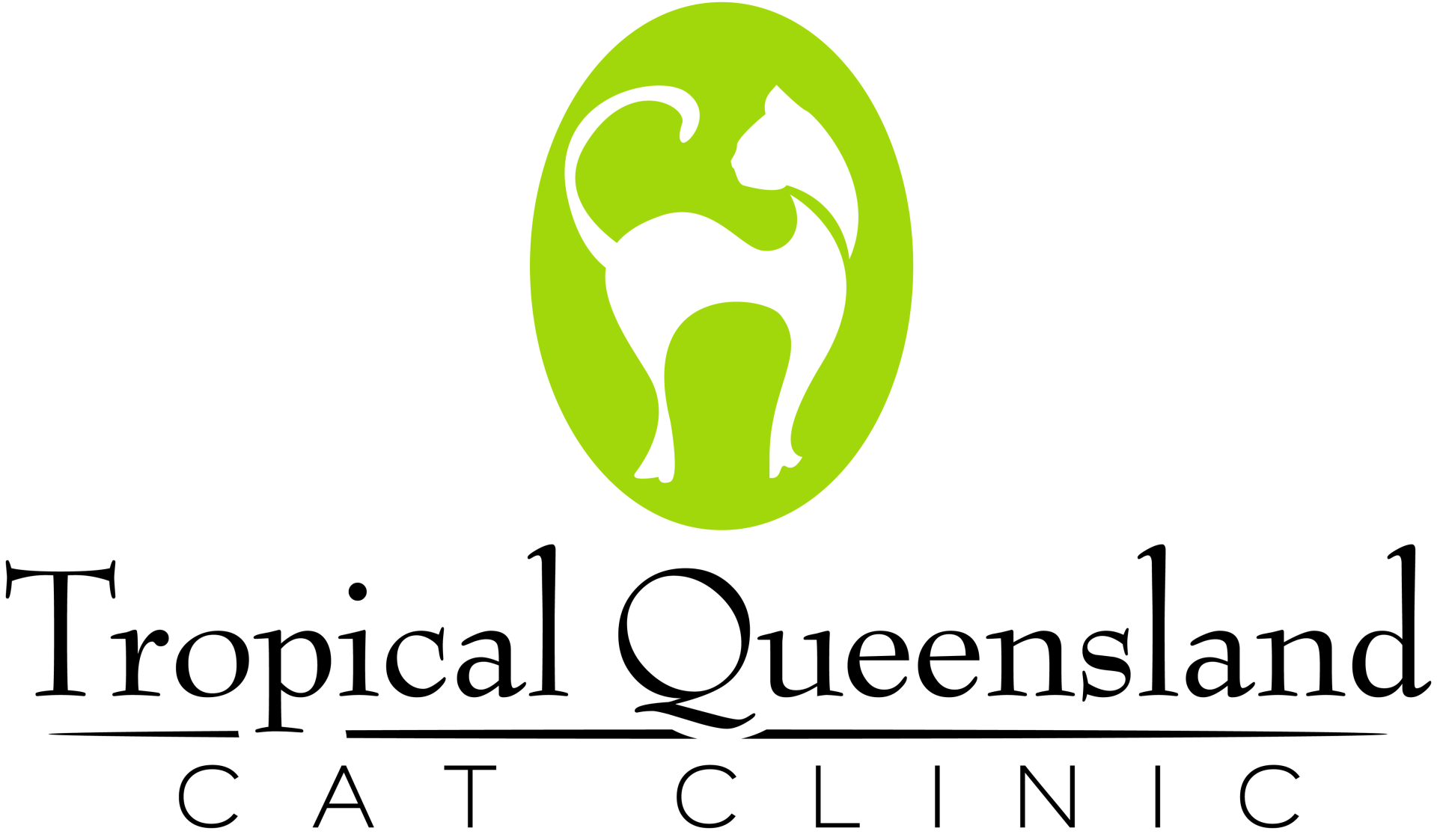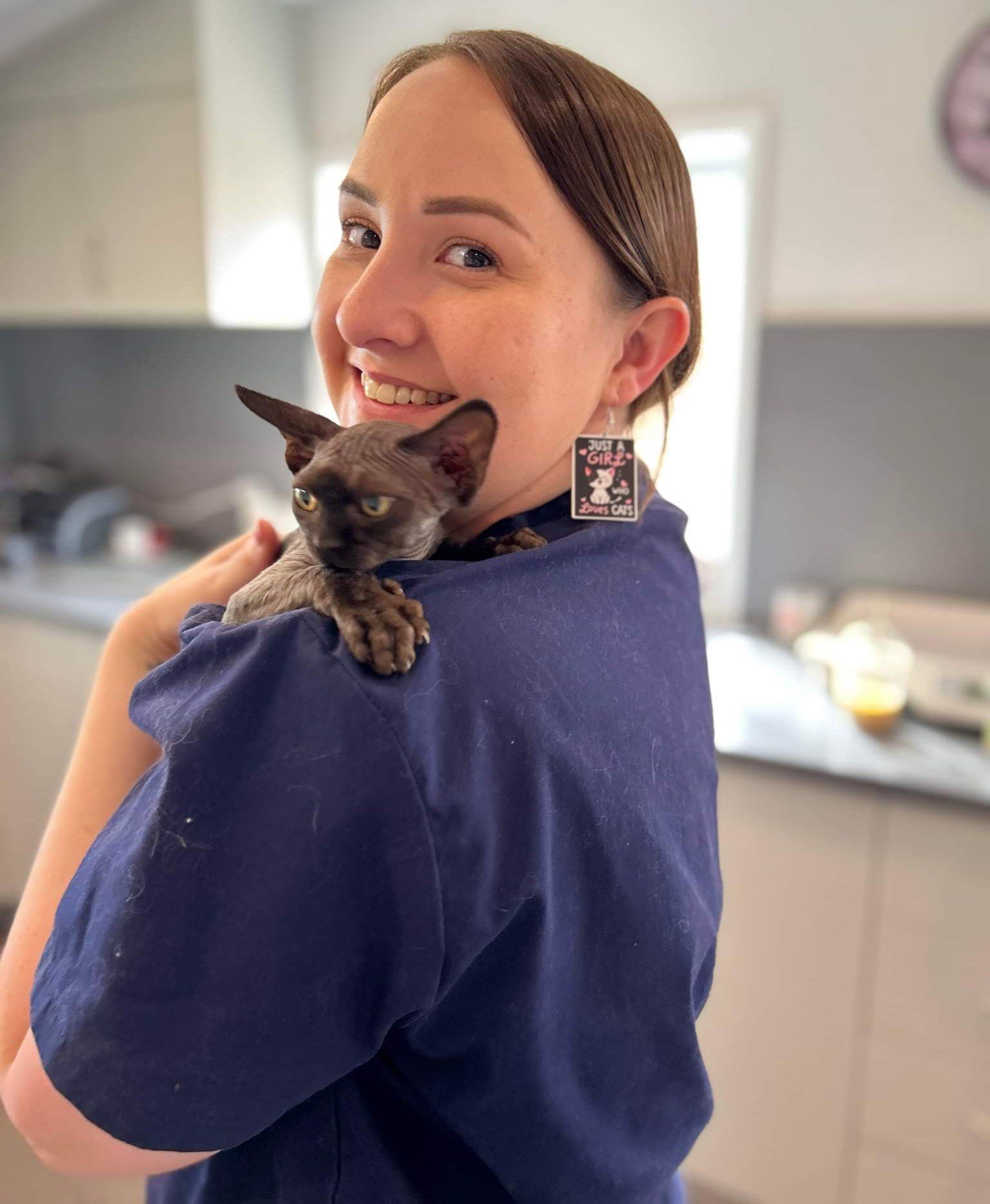Preventable Cat Diseases in Townsville
Heartworm
Heartworm is a disease with emerging significance in cats. Whilst the rate of this disease has not been studied in Townsville, extrapolation from the canine rate using AHS guidelines would suggest that approximately 2-4% of unprotected cats in Townsville have the disease. Cats can be protected by administering Revolution or Advocate spot-on or Milbemax cat de-wormer at monthly intervals.
Cat Flu
Cat flu is a very common cat disease, and several pathogens can be involved. Vaccination of cats will decrease the severity of symptoms, but cats can still get symptoms if exposed to the agents(a bit like the human flu). Some cats may develop sneezing or weepy eyes simply when stressed. This is because one of the agents of cat flu is a herpes virus(similar to a human cold-sore virus). It can never be completely cleared and will "break out" during periods of stress or other diseases.
Most Townsville boarding catteries will require a recent vaccine against cat flu before your cat can enter the facility.
Intestinal Worms
Intestinal worms are very common in untreated cats, and some types of worms can be passed from animals to humans. It is important to worm your adult cat at 3 monthly intervals.
Diabetes and Arthritis
Diabetes (Mellitus) is common in older cats. Symptoms include increased water intake and hunger with weight loss. Some cats can become very unwell with this disease. Overweight cats and certain breeds (such as Burmese cats) are predisposed to this disease.
Arthritis (degenerative joint disease) is common in older cats. Whilst this disease will happen in many old animals, being overweight tends to make it more likely and more severe.
You can reduce the risk of these diseases affecting your cat by keeping them in the healthy weight range.
Dental Disease
Dental disease is very common in middle-aged to older cats. Tartar builds up on the tooth, and the gum recedes away from the tartar. This leads to loose teeth and exposed nerves. Cats are also prone to feline odontoclastic resorptive lesions (FORLs). This occurs when an area of a tooth dissolves, an exact cause has not been found, but affected teeth can be very painful. Signs of dental problems are turning the head when chewing(to only use one side of the mouth), bad breath or jaw chattering when a sore area is touched.
Dental disease can be prevented or made less likely by brushing your cat's teeth(very few people can do this regularly) or using dental products or special diets.
Poisoning and Foreign Bodies
Most cats are fairly sensible about what they choose to eat but can be caught out by some poisonous materials. Lilies are highly toxic to cats and should not be kept in any household with cats or kittens.
Many human medications are also toxic to cats, especially paracetamol.
Cats love playing with thread, and some cats will eat long pieces of thread, string or wool. Be careful to keep these materials away from your cat. If eaten, they can lead to a linear foreign body, a difficult-to-diagnose and serious condition.
Feline Immunodeficiency Virus (FIV)
FIV is a common infectious disease of outdoor cats in Townsville (About 10% of cats are infected). It is the cat equivalent to HIV(humans cannot catch this disease).
FIV leads to an increased risk of infection and cancer but does not necessarily shorten a cat's lifespan if the cat is kept indoors only and well cared for.
A cat vaccine is now available at our Townsville clinic to try to prevent cats from catching this disease. As the vaccine is new, data on its efficacy in Australia is limited. However, it is recommended for high-risk cats (cats that roam outside, fight and get abscesses).
Feline Leukaemia Virus (FeLV)
An effective cat vaccination is available to prevent this disease. FeLV is an uncommon infectious disease in Townsville, but it is present at low rates (we know of 2 cases in the last year). Young outdoor cats are most likely to catch the disease. An effective vaccination is available to prevent this disease.
For more information on cat vaccination or to make an appointment with one of our vets.





